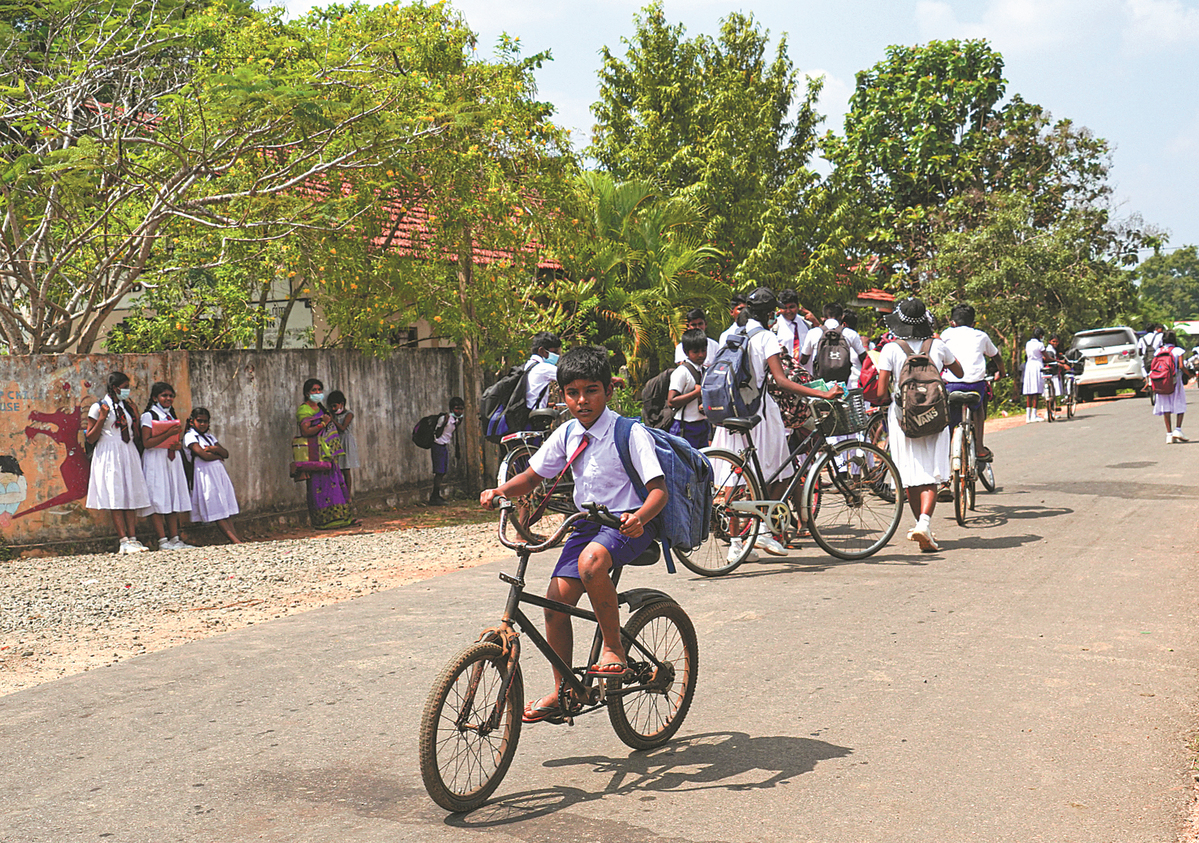GSI can ensure peace, stability in Asia


Support in Asia
Governments of Asian countries have spoken out for peace, security and development cooperation.
During the 77th session of the United Nations General Assembly in New York on Sept 24, Laotian Deputy Prime Minister and Foreign Minister Saleumxay Kommasith, said the international community needs to find peaceful and lasting solutions to conflicts and disputes to promote multilateralism and shared interests of all countries.
In a position paper to the assembly, China also said that the international community's call for peace and development has grown stronger.
"Countries need to strengthen solidarity and cooperation, uphold the vision of 'a community with a shared future for mankind', improve the global governance system, and work together to find solutions to global issues," it said, noting the importance of true multilateralism and a global community of security for all.
Lucio Blanco Pitlo III, a research fellow at the Philippine think tank Asia Pacific Pathways to Progress, said the GSI supports dialogue and consultation with all parties to a dispute, ensuring that their interests and concerns are heard.
"Its emphasis on noninterference will soothe countries of various political and governance stripes wary of external forces intruding into their domestic affairs," said Pitlo, noting this is a welcome relief for countries that have long suffered from foreign intervention.
Pitlo also said the GSI puts a premium on UN-led efforts to provide more credible cover for international mediation, peacekeeping and relief missions.
However, "disagreement between key members can stymie UN work and diminish its role in brewing hot spots, if not actual conflict zones", Pitlo said.
Mustafa Izzuddin, senior international affairs analyst at consultancy firm Solaris Strategies Singapore, said he sees the GSI more as an opportunity for countries in the Asia-Pacific region to pursue direct engagement with China.
"The more the GSI seeks to include, rather than exclude, the more it may find resonance with countries in the Asia-Pacific," he said, adding that the more the region is perceived to be secure, the more economic development and even progressive integration of diverse economies there will be.
"Without a robust security architecture, there will be ebbs and flows in economic development, so it is incumbent on countries in the Asia-Pacific to look for ways to enhance regional security," Mustafa Izzuddin said.
He noted that Western colonization has left an indelible mark in the region, for better and for worse, including giving rise to present-day border disputes.
"Countries should not escalate but de-escalate border conflicts and come to the realization that it is better to cooperate on security matters and understand that their mutual interests are not confined to border disputes," he said.























